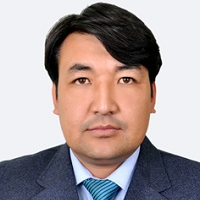Reflecting the role of peasants in the thought of the left current of Afghanistan (1991-1961)
The traditional historiography of Afghanistan is often politics-oriented and focused on the upper classes of the society; However, with the emergence of left-wing historiography in Afghanistan, the dominant trend of historiography in this country changed, and the lower social classes such as peasants were considered as history-making groups. The mentioned movement paid special attention to the peasant class; Because more than half of the population of Afghanistan lived in villages and led an agricultural life. From this point of view, they looked for the solution of the socialist revolution among the rural population, especially the peasants.The main problem of the current research is how to reflect the position of the peasants in the thought of the left movement of Afghanistan. This research seeks to answer the above problem with the analytical-descriptive method and with the class analysis approach. The findings of the research show that the People's Democratic Party affiliated with the Moscow line of thought put the land reform program at the top of their social and economic reform programs. The Shola Javid movement also wanted to open a place in the villages according to its Maoist appeal. Like Mao, they wanted to achieve the socialist revolution through the villages and with peasant power. But the peasants' illiteracy, custom and religious beliefs were the most important challenges to the promotion of left-wing thought in the villages. Rather, the villages of Afghanistan practically became the most important stronghold of the opponents of the left movement.
-
The impact of structuralism on the historiography of the Kabul History Association
Valiollah Barzegar Klishomi *,
Jostarha-ye Tarixi,



